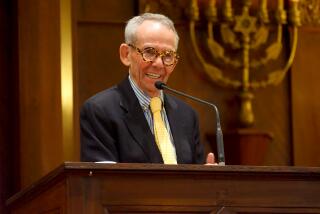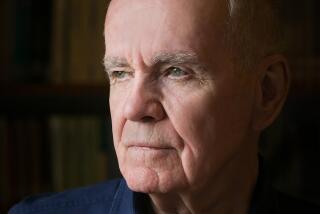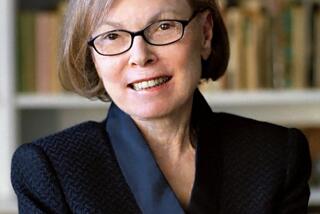In Debt to Malcolm Cowley
- Share via
Americans are too democratic to lionize their critics, as the French do; too suspicious of authority to defer to it, as is the English habit. But we almost made an exception for Malcolm Cowley, the critic, literary historian, poet, editor and essayist, who died Monday at the age of 90.
William Faulkner, whose work Cowley championed, said he owed him “the kind of debt no man can ever repay.” So does everyone else who cares about modern letters.
Cowley, in fact, would deserve to be remembered if his only critical accomplishment had been to rescue Faulkner from obscurity in the mid-1940s. But his contributions to literature went far beyond that. A decade earlier, he had played a decisive role in interpreting and advancing the work of that generation of post-World War I novelists and poets whose efforts helped put American letters in the vanguard of international modernism. Later, as an editor at the New Republic and Viking, he guided John Cheever into his distinguished career and gave challenging young writers like Jack Kerouac their first sympathetic reading
“Writers often speak of ‘saving their energy,’ as if each man were given a nickel’s worth of it, which he is at liberty to spend,” Cowley once said. “To me, the mind of a poet resembles Fortunatus’ purse: the more spent, the more it supplies.”
Cowley spent from his considerable capital with an uncommon vision and a rare generosity. Literature and those who love it will reap the benefits of that investment for many years to come.
More to Read
Sign up for our Book Club newsletter
Get the latest news, events and more from the Los Angeles Times Book Club, and help us get L.A. reading and talking.
You may occasionally receive promotional content from the Los Angeles Times.







